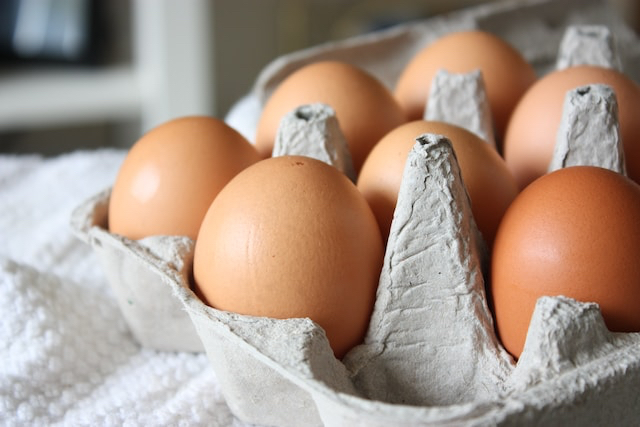Cape Town – In response to the ongoing avian flu crisis gripping South Africa, supermarket giants Woolworths and Pick n Pay are reportedly taking decisive measures to cope with the severe egg shortage, with other retailers closely monitoring the situation.
According to Times Live, Woolworths, a prominent player in the South African retail landscape, has taken the lead by implementing a temporary rationing system for its customers.
Under this new policy, customers are limited to purchasing six eggs per visit unless the store still has remaining stocks of 18 or 36 egg packs. This move aims to ensure that the available egg supply is distributed fairly among consumers, the report said.
“Woolworths has been monitoring the avian flu situation carefully both locally and internationally, and we are following strict biosecurity protocols to protect our hens as best we can,” the report quoted the retailer as saying in a statement on Tuesday.
Woolworths acknowledged the strain on their supply chain, echoing the challenges faced by the broader market. They assured customers that the limitation on whole egg purchases is a temporary measure. The retailer expressed its gratitude for the patience and understanding exhibited by its loyal customer base during these trying times.
Pick n Pay, another major supermarket chain, is also preparing to impose restrictions on egg purchases., the report said.
They plan to limit customers to one or two egg packs per visit, depending on the region. The grocery giant is actively collaborating with suppliers to manage their stock efficiently, especially in areas where suppliers have been affected by the avian flu outbreak.
ALSO READ | Retailers struggle to secure egg supplies amid severe bird flu outbreak
Pick n Pay has issued a call to its customers to shop responsibly, urging everyone to consider the collective needs of the community during these challenging times.
Meanwhile, the Shoprite group, a major player in the South African retail sector, has faced disruptions in its online shopping app, Sixty60. On Tuesday, all egg brands were listed as “out of stock” on the platform, raising concerns about potential limitations on in-store purchases.
However, Shoprite clarified that they have no immediate plans to implement quantity restrictions. The retailer is actively working with suppliers to secure additional stock and distribute it to regions facing shortages.
Earlier this month, the South African Poultry Association (SAPA) said the nation was contending with two different strains of the virus, the infamous H5N1 and a new strain identified as H7N6.
Producer Quantum Foods said last week that this year it had lost almost two million chickens – worth a total of more than 100 million rand ($5.3 million) – because of the disease.
Bird flu does not typically infect humans. But H5N1 is increasingly infecting mammals worldwide, raising fears it could pass on more easily to people.
The virus has typically been confined to seasonal outbreaks, but since 2021 cases have emerged year-round, and across the globe, leading to what experts say is the largest outbreak ever seen.
SAPA said the number of avian flu cases in South Africa this year was higher than in any year since the first outbreaks were reported in commercial farms in 2017.
Follow African Insider on Facebook, Twitter and Instagram
Picture: Unsplash
For more African news, visit Africaninsider.com
Compiled by Betha Madhomu


